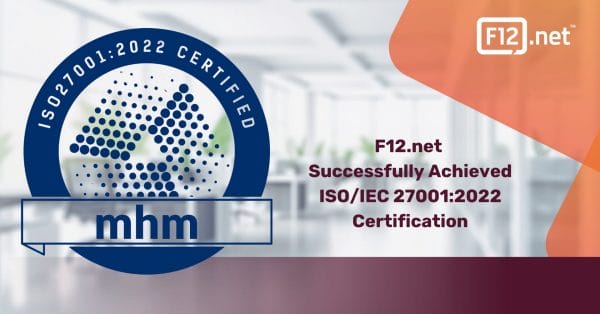Among your many responsibilities, maintaining your IT efficiency and reliability for yourself, your staff, and most importantly your clients is a major one. As technology-driven as most other businesses today, accounting firms still have their unique requirements when it comes to IT. Important aspects, especially during the busy tax season, include up-time, reliability, productivity, and security. It’s crucial that any technology solution used is scalable; allowing the firm to quickly add resources during tax time and reduce their costs to normal for the remainder of the year.
One accounting firm I recently visited had an accountant take on the responsibility for IT and associated support. When I sat down with the managing partner, I asked him if he realized that one of his revenue-generating staff was spending over 40% of their time on non-billable IT work. This effort equated to tens of thousands of dollars per month in lost revenues! Added to which, the firm’s users weren’t getting an optimal IT experience and, as a result, the clients suffered.
Accountants do not Need to be IT Managers
A single person responsible for IT, even when specifically trained for the job, is not the same as a full IT department or even an outsourced Managed IT Services Provider for accountant IT services which can draw on a large pool of diverse technical staff. The small in-house IT group (or person) cannot provide the range of support needed to maintain the firm’s critical infrastructure—critical to daily business activities and critical to long-term revenue streams.
If any of this sounds familiar, it probably means most of your IT support’s time is spent putting out fires. They are in an “It’s broken, let’s fix it” mode: handling day-to-day problems as they arise. An employee cannot print a PDF from Caseware, a PC crashed and lost client data, and another employee downloaded a virus. Meanwhile, someone installed a new version of Tax Prep and then found out the Operating System also needs upgrading due to an incompatibility. As a result, the IT staff has little or no time to be proactive which in turn would reduce the reactionary and unplanned downtime.
With all these distractions, who is looking at the long-term implications for the expansion and development of your IT infrastructure to meet business growth? No one.
A study by the American Institute of CPAs2 found that 92% of CPAs said they are not future ready; if you aren’t, you should start moving down that road today.
The Challenge of Internal IT Support
Do you remember your last serious IT-related business interruption? Were the response and resolution everything you had hoped? Did you rely on your in-house, one or two person team? What if they had been on vacation, sick, or unreachable?
Maybe you encountered these situations and contracted an outsourced IT technician to put out those fires. What were the direct costs to your company once travel fees, after-hour or escalation surcharges, and hardware/software repairs where factored appropriately? Add to that the business downtime while the technician travels to your office to resolve the issue, taking 24-48 hours (or more). Resolving issues on a reactive basis is not always a same-day fix.
One way to avoid critical breakdowns is to ensure your environment is monitored around the clock. Monitoring also helps control and avoid security breaches, viruses, and cyber-attacks. However, it is not something most small firms can do on their own. It requires an investment in sophisticated software and hardware and the presence of full time 24/7 technical support.
If your IT support is mostly reactive, resolving issues as they occur, and not proactive, who has the time to ensure you comply with government and industry regulations? Your firm must be diligent in complying with security requirements and able to prove your internal systems are safe from cybercriminals.
Some accounting firms are happy with their current data backup system but don’t know if it can be accessed quickly enough during an emergency. Are you confident that your business can be back online or able to access lost data with minimal disruption no matter what? Again, you need to ensure you have this expertise either in-house or outsourced to a professional team.
Moving Forward to “Future Ready”
Many accounting firms are offloading some of their security and data protection challenges by moving to cloud solutions for their practices. The National Management of an Accounting Practice survey1 found that 56% of CPA firms surveyed are using cloud-based software. More and more accounting firms have opted to move into the cloud for security, reliability, software management, business continuity, disaster recovery, and secure availability from anywhere at any time on any device. All major software companies catering to the accounting profession are already cloud-enabled.
With the Cloud, Accountants can provide business owners with real-time information which can help improve both customer experience and the decision-making process. What’s more, your employees can focus on what they should be doing, generating revenue, without having to play in-house IT when there’s a problem with your system.
Whichever direction you end up taking, make sure you do your homework and that you have the following in place:
- A security policy using industry best practices
- Yearly risk and security awareness training for all staff
- A solid archive plan: know how you will deal with the ever-increasing data that you store on behalf of your clients
- A secure method of sending and receiving client files
- Updates to your Line of Business Software (e., Caseware, Taxprep, etc.) executed in a timely fashion
- A full understanding of your backup strategy and what to expect when you need to recover
- A complete Disaster Recovery and Business Continuity plan
Tax season is upon us: consider some changes in June to align with the key items you feel are important to you and your firm.
If you are not in the Cloud, educate yourself as to what your firm is missing out on, and if you are already in the Cloud, take the time to make sure you are as secure as you need to be.
F12.net works with Accounting and Financial Firms across the country with these areas and more, if you are such a business that feels there must be a better way, we’d love to learn more about you and your organization.
Doron Kaminski
F12.net, Inc.
Managing Partner, Toronto
F12 serves accounting firms with IT services across Canada
- British Columbia
- Alberta
- Ontario
Sources
1 AICPA https://www.aicpa.org/content/dam/aicpa/advocacy/state/downloadabledocuments/cloud-computing-one-pager.pdf
2AICPA https://www.aicpa.org/Press/PublishingImages/CPA-of-Future-Study.pdf


